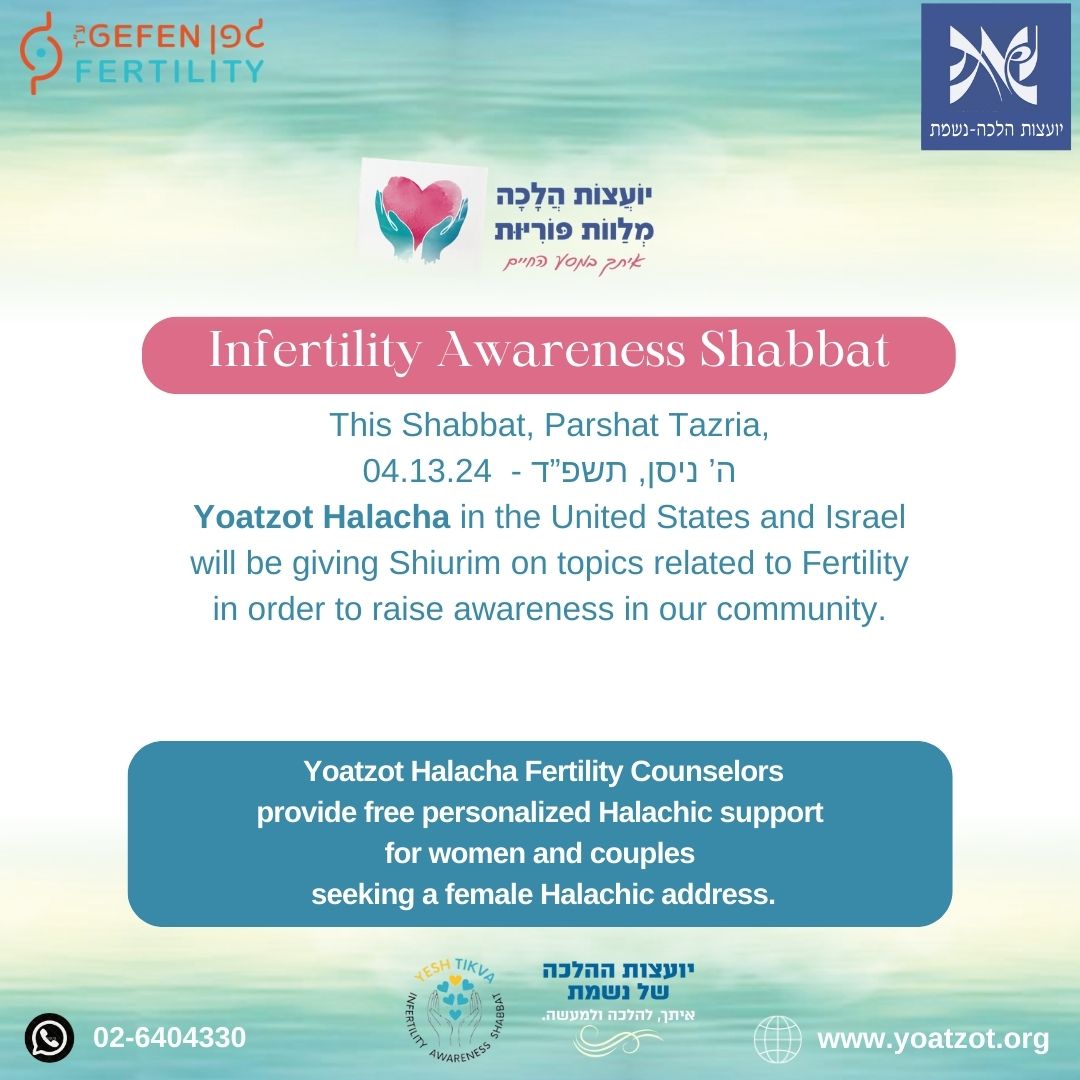Woman with Corona used mikveh
22 March, 2020
 Question:
Question:A woman who used our local mikveh last week was just diagnosed with Coronavirus, and now all the women who went that night were quarantined! Is it safe to use the mikveh?
Answer:Mikva’ot that adhere scrupulously to current public health guidelines should be safe for use. If a woman who used the mikveh is later confirmed to have COVID-19, then the local health authorities will give specific guidance to the mikveh in advance of reopening the premises. Women who are immunocompromised or at high risk should consult their physicians first.
As with any public space, there is some risk of being quarantined if it turns out that a person later diagnosed with Corona was there at the same time as you. This applies to locations such as stores, buses, and synagogues, as well as to mikveh.
The mikveh pool itself is chlorinated, and the railings and preparation rooms are cleaned and disinfected between women. Therefore, a properly maintained mikveh does not present a unique risk of infection compared to other public spaces.
We recommend you work within your community to set up an appointment system if you don’t have one yet. Depending on the specific situation, this could help determine which women were at the mikveh at the same time and minimize the number of women who need to enter quarantine due to possible passage within two meters of the woman diagnosed, or to possibly touching a non-disinfected surface that she touched, too.
May we all merit good health and good news.
This internet service does not preclude, override or replace the psak of any rabbinical authority. It is the responsibility of the questioner to inform us of any previous consultation or ruling. As even slight variation in circumstances may have Halachic consequences, views expressed concerning one case may not be applied to other, seemingly similar cases. All health and health-related information contained within Nishmat's Women's Health & Halacha Web site is intended to be general in nature and should not be used as a substitute for consulting with your health care professional. The advice is intended to offer a basis for individuals to discuss their medical condition with their health care provider but not individual advice. Although every effort is made to ensure that the material within Nishmat's Women's Health & Halacha Web site is accurate and timely, it is provided for the convenience of the Web site user but should not be considered official. Advice for actual medical practice should be obtained from a licensed health care professional.
For further questions or comments: 
The Nishmat Women's Health and Halacha Site is a public service of Nishmat, The Jeanie Schottenstein Center for Advanced Torah Study for Women. This project and others like it are made possible by contributions from people like you. If you have benefited from the service, and wish to enable us to help others, click here to donate.
Users of Internet filtering services: This site discusses sensitive subjects that some services filter without visual indication. A page that appears 100% complete might actually be missing critical Jewish-law or medical information. To ensure that you view the pages accurately, ask the filtering service to whitelist all pages under yoatzot.org.






 Question:
Question:







